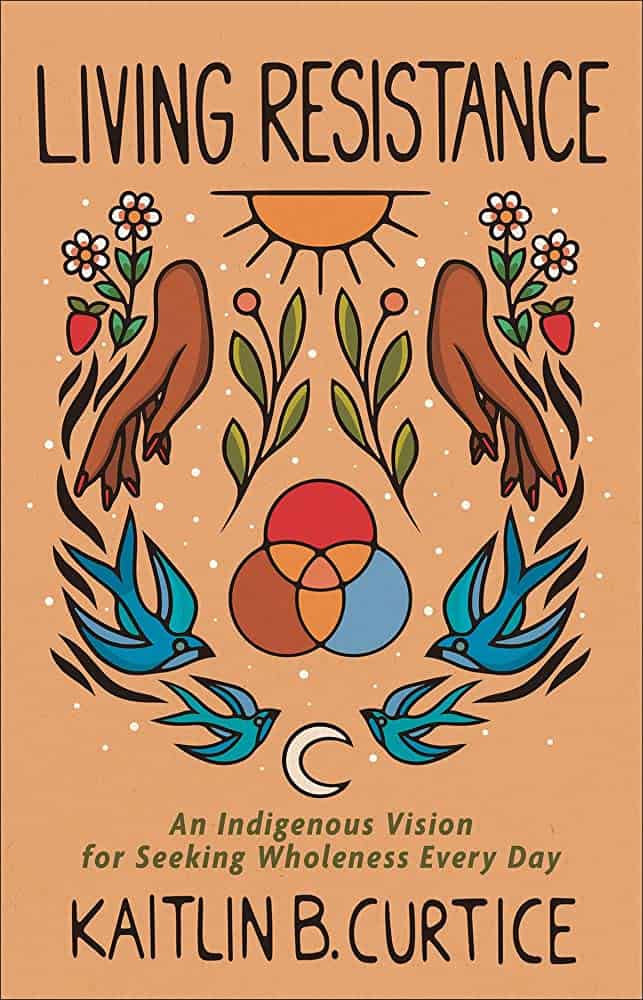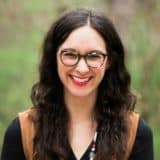 The word story is defined as “an account of past events in someone’s life or in the evolution of something.” I think about this a lot when I travel and speak: How does our story evolve, change, and become? How do we ask questions, and what happens when our questions change over time? If a story is meant to evolve, then so are we. We get to examine our own stories and ask those questions; we get to acknowledge the ways we’ve changed over the years.
The word story is defined as “an account of past events in someone’s life or in the evolution of something.” I think about this a lot when I travel and speak: How does our story evolve, change, and become? How do we ask questions, and what happens when our questions change over time? If a story is meant to evolve, then so are we. We get to examine our own stories and ask those questions; we get to acknowledge the ways we’ve changed over the years.
But often, this can be painful. The pain is why many of us choose not to go deeply into the work. If we understand how we got here, then we understand all that went wrong. We understand how people who should have loved us well didn’t. And we understand how institutions that should have protected us chose not to. It’s why so many of us go to therapy or find chosen family in order to love and be loved out in the world. I think of my queer kin, who fight again and again to exist in spaces where they are loved just as they are.
Julie Rodgers writes about this so viscerally in her book Outlove. She asks, “What’s a queer person to do in that situation, when the only people we’ve ever known and loved believe our love is disordered and our bodies are broken?”
What do we do when we realize that the status quo of our religion, our country, our families, or our institutions is to shame those who are queer, trans, Indigenous, Asian, Black, Latinx, poor, Jewish, Sikh, or anything else considered “other” to them? Either we disappear into the toxicity of assimilation completely (or as much as is allowed by society), or we begin to untangle the horrible webs of hate that have for years made us hate our own beloved bodies and experiences.
So we take a step back and ask what our stories mean. We ask how we must now evolve to get to the heart of who we are. We ask what resistance feels like for us. Often, it is through deconstruction. For some, it is through decolonizing. It means taking a look at the systems, and sometimes the people, that would not acknowledge us as fully human and saying that there is a better way to be in this world. It means saying that we are willing to dream and fight for that better way. It means that white folks step back and learn how to listen to those who have been marginalized by our society at every level.
For author and activist Austen Hartke, deconstruction and decolonization involve helping the church understand how it can value and love transgender people. Austen writes, “When a church is trans-affirming, transgender Christians can show up as themselves, unapologetically. By doing that, they show everyone else in the congregation that it’s all right to bring their whole selves into the community, that nobody has to ‘fake it ’till you make it’ as a perfect Christian.”
Deconstruction, through honest questions and critiques, is resistance because it not only involves our stories but actually involves us and the ways we hold space for our own sacredness. For many queer, nonbinary, two-spirit, and transgender individuals, American and Christian institutions are not safe places, so they know they cannot show up fully as they are. A 2021 report by the Human Rights Campaign found that “fatal violence disproportionately affects transgender women of color—particularly Black transgender women—and that the intersections of racism, sexism, homophobia, biphobia, transphobia, and unchecked access to guns conspire to deprive them of employment, housing, healthcare and other necessities.”
These acts of violence toward transgender and gender-non-conforming people are to the detriment of us all because when our spaces limit us, we cannot practice our humanity fully. We are colonized and trapped in cycles of oppression, and the way out is through storytelling and love, through those who, as Austen reminds us, show up fully as themselves until we all learn to do so. People who have been forced to the margins of our society are so often our prophets and theologians, the ones who point us toward God—the Sacred—and toward a better way of being human. In the Personal Realm, let’s remember those who have helped us ask difficult questions, who have helped us love ourselves well.
What I have come to realize is that theologians—people who are looking to understand God or the Divine—are people who have been asking difficult questions for years and grounding themselves in the reality that it is both lifelong work and fully sacred. They also happen to be great storytellers. So when I am confused about what part of the journey I am on (Am I deconstructing or decolonizing? Am I reconstructing or floating about in space?), I look to the storytellers to remind me that it’s okay to be wherever I am. … As Mia Birdsong writes, “All of us have something to shed, something to purge, so we can make room for the reclamation and reinvention of community and family.”
Every few years, it seems there are folks within Christianity who rise up and declare that deconstruction is harmful and only leads people away from their churches into an unsafe world. First, this puts a substantial emphasis on the church’s success at helping people navigate the world in a loving, kind way, which is not often the case. Second, folks who say this have little faith in those of us who have left the institutional church to find Creator where Creator has always been—everywhere, especially in the places the church told us God was not.
My experience with deconstructing the faith I grew up with and examining my own story and evolution has led me to more questions, to more love, and to a fuller experience of the Divine. Has it caused me to question and distrust powerful people and institutions? Yes. That’s why it’s so scary for those institutions. And yet so many of us who are asking deep, difficult questions about the ways in which we grew up find that, yes, the world can be scary, but it can also be beautiful. And journeying out to find it all, to break free of the barriers set on us by institutions, governments, and religious leaders, is resistance.
Content excerpted from Living Resistance by Kaitlin B. Curtice, ©2023. Used by permission of Brazos Press.
Kaitlin B. Curtice is a Native American Christian author, speaker and worship leader, and the author of Glory Happening: Finding the Divine in Everyday Places. As an enrolled member of the Potawatomi Citizen Band and someone who has grown up in the Christian faith, Kaitlin writes on the intersection of Native American spirituality, mystic faith in everyday life, and the church. She is a contributor to Sojourners, and you can also find her work on Patheos Progressive Christian.
is a Native American Christian author, speaker and worship leader, and the author of Glory Happening: Finding the Divine in Everyday Places. As an enrolled member of the Potawatomi Citizen Band and someone who has grown up in the Christian faith, Kaitlin writes on the intersection of Native American spirituality, mystic faith in everyday life, and the church. She is a contributor to Sojourners, and you can also find her work on Patheos Progressive Christian.


